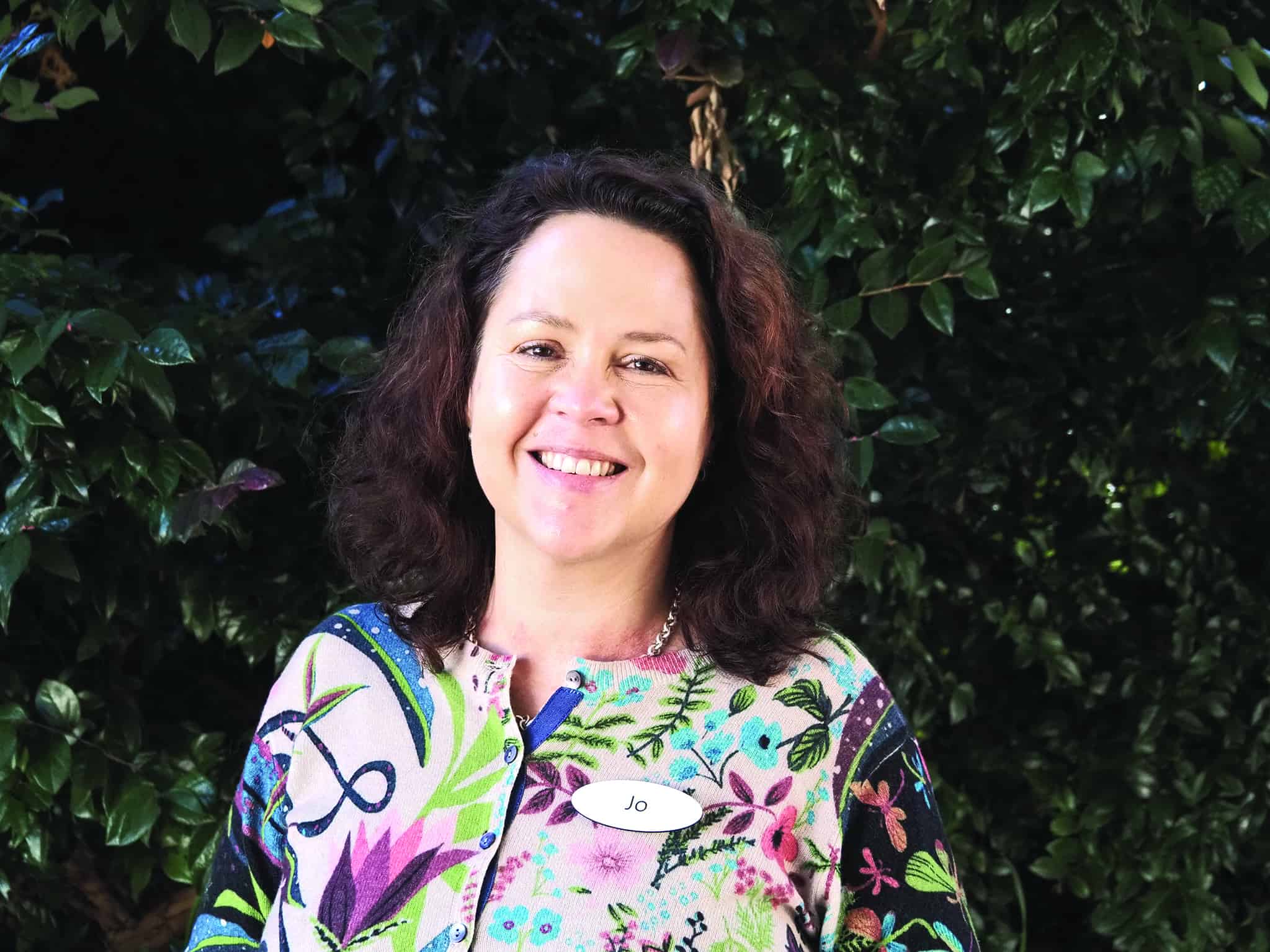News Article
How have the generations of aged care residents changed?

Want to read more articles like these?
JO Forrest, Director of Nursing at Darlingford and Upper Goulburn Nursing Home, started working in the aged care industry in about 2010, not directly employed but as a lecturer in Nursing and took students into aged care facilities. As a result, she had a good knowledge of what was happening in aged care and the residents. She started managing aged care homes in 2017.
RESIDENTS BORN IN 1925-1930
What was the approximate year of birth of the residents at the time you started working in the industry?
In 2010, many of the residents were born in 1925 or 1930.
What were they like as a group?
Jo described the residents as lovely people, adding that they were “A little more politically correct. Definitely never swore. More reserved, and had a properness about their interactions.”
What kind of music did they like?
“When I used to have students, we used to play music in the dining room and lounge rooms. We’d play lots of the stuff from the 1950s and 1960s, because they were in their 20s and 30s then. Buddy Holly, Billie Holliday, Nat King Cole, Ray Charles, Frank Sinatra, that kind of thing,” Jo said.
What was their attitude towards life?
Their focus, when you had conversations about their youth and marriage and those sorts of things, divorce was fairly uncommon. There was a lot of focus on hard work. There was still the very strong mentality of the women staying at home. Very much so.
How did they like to spend their time?
Bingo is always everybody’s favourite game in the whole world for as long as I’ve been in aged care. They also liked bus outings. They liked going on trips to see the coast or up to the parks and things like that. They liked going out. Afternoon tea was a massive focus for them then, and the women were very heavily into craft. The women formed knitting groups and sewing groups and things.
What kinds of things did they like to talk about?
Their families. Always their families. Their children and grandchildren, or if they come from the country, lots of focus on their farm properties and things that they did on farms, farm dogs, horses and things like that.
What was their attitude towards money?
They had a really high focus on frugality. They were not wasteful.
What was their attitude towards child-rearing (different for men/women)?
The men were not particularly involved [in child rearing]. What I have noticed over several generations was that the men were not hugely involved in their own children but became far more interested in their grandchildren. It’s still very much the same in aged care, although I do find with changes in cognition, the men tend to develop more closeness to their children as they get much much older. Their grandchildren, before cognitive impairment became a problem, were the focus.
Women were very much the hands-on in the household, the way that they talk about it. In one of the homes I used to manage in fact, the women created a domestic chores group. They would sit in the dining room a couple of times a week and peel the vegetables and fold the linen together as a group. They loved it. They’d natter away. The men were never present, ever.
With regard to child rearing, there was very much a ‘get out there on your bike and don’t sit around the house. Don’t get under my feet’ attitude.
What was their attitude towards the changing morals of the day?
I recall lots of discussion about things like tattoos and when they saw on television too much flesh on a show. Mini-skirts that were too short or mid-riff tops or low-cut tops. It was a little confronting I think for some of the people. That has changed over time.
Divorce has become a lot more common. They’ve seen a lot of their adult children who are now in their 50s and 60s divorced now, which has been quite challenging for a lot of our residents.
What was the best thing about that particular generation?
I’d love to say their sense of family in a lot of ways. I would probably be kidding myself if I didn’t think there were a lot of the same kind of issues. I think the sorts of issues that we see now in social media were always there, they were just not as well known. We do find with people who have got a cognitive impairment, we hear stories about what went on when they were younger, but it was well hidden. I do sense a greater sense of family, a pride in the family network that is perhaps a little different.
CURRENT RESIDENTS
What are they like as a group?
Acceptance of change. They’ll talk to me about the fact that I have a tattoo and things like that. There is a change. People that are moving into the facility now have been seeing people with tattoos for the last 15 years. For the people who were in aged care when I first started, it wasn’t commonplace. At that stage, it was bikies and sailors.
What kind of music do they like?
The residents now will happily sing along to ABBA and things that were commonplace when I was a little girl. Things that were common 40 years ago instead of 60 years ago.
What is their attitude towards life?
It’s the acceptance of the fact that life is changing and moving. I’ve got residents that know their way around mobile phones and laptops. Definitely, there is a greater acceptance of and knowledge of modern technology. People in homes when I first started in 2020 had no mobile phones or computers.
How do they like to spend their time?
Still Bingo. I think a lot of the dynamic changes with the individual homes. I’ve worked in city homes as well as regional homes. They still love get-togethers and chit chats and afternoon teas. But you do see them now happier to sit and watch a movie together. I didn’t see much of movies as a social activity before, but I do see a bit of that in some homes now. If they want to go out on a bus ride, they want to go to a destination and do something, whereas 15 years ago, their going on a bus ride was going sightseeing and looking at the coast as they drove by.
Has there been any change in the kinds of things do they like to talk about?
Not really.
What is their attitude towards money?
Yes. I would say I do see some residents who are still cognitively-able talking about the fact tat they don’t have a problem spending their money on things that they want and need at this point, whereas a generation or two behind that, they were very much about saving money so that they’ve got something to give to their children.
What is their attitude towards child-rearing (different for men/women)?
I do see maybe a little bit more involvement from men. Maybe that’s because the next generation along, women started to go to work so they were maybe forced into a little bit more hands-on work with the children. Maybe just a tiny bit. There are closer relationships now, just a little bit.
What is their attitude towards the changing morals of the day?
Maybe more acceptance of those things we talked about. Clothing, tattoos, marriage or relationship breakdown, and children outside of marriage.
What is the best thing about that particular generation?
How broad-minded they are. I have to say, I’m impressed.
...continue reading the full article by subscribing to our weekly, monthly or annual subscription here.
If you see a photo in the paper of your child, grandchild, partner, or friend we can supply you with a copy to put on your wall as long as Alexandra Newspapers took the photo (we cannot provide a copy of a photo that was taken by a third party).
Alexandra Newspapers is proud to distribute our two primary publications through newsagents, supermarkets, petrol stations and many other outlets across the Murrindindi Shire and beyond.
Alexandra Newspapers offers display and classified advertisements as well the ability to promote your business. Both the Alexandra Standard and the Yea Chronicle offer classified ads for: Births, Deaths, Marriages, Situations Vacant, For Sale, Garage Sale, In Memoriam, Happy Birthday, Anniversary, Public Notice, Meetings, Automotive, Car/Caravan/Motorbikes/Boats. For Rent/Lease, and Wanted.
Alexandra Newspapers can provide commercial printing of plans, posters, business stationery, invoice and receipt books, self-inking stamps and more. Reach out to us for any commercial printing jobs here.
Grab a copy of the weekly newspaper or reach out to us here for subscribing an offline newspaper copy.
Like, comment and share the article on your facebook page.
Want to read more articles like these?

Services
Newspapers
© 2020 - 2024. ALEXANDRA NEWSPAPERS. All rights reserved.
Privacy Policy | Terms of Use | Sitemap
Website built with ❤ by Regional Business Toolkit


